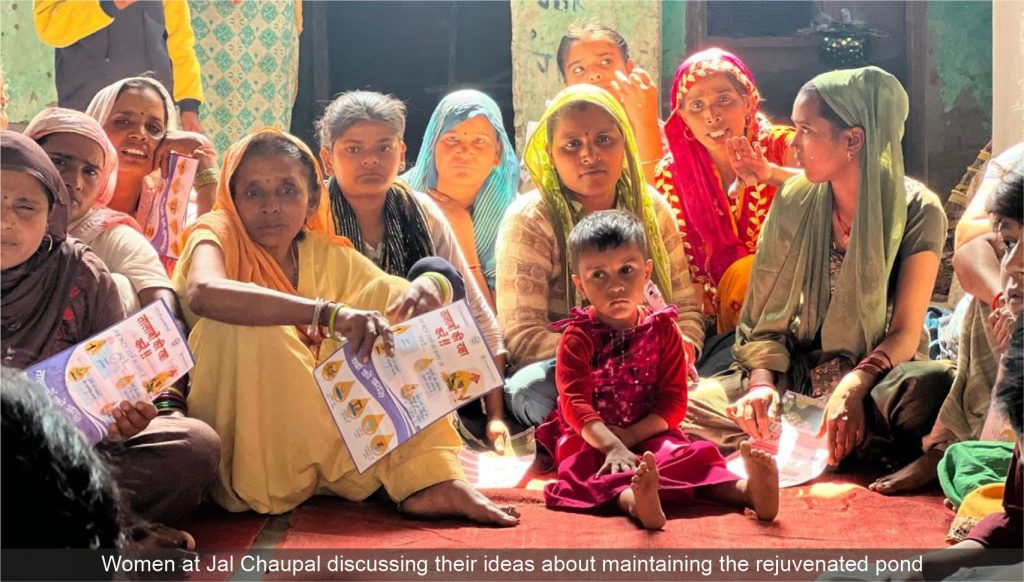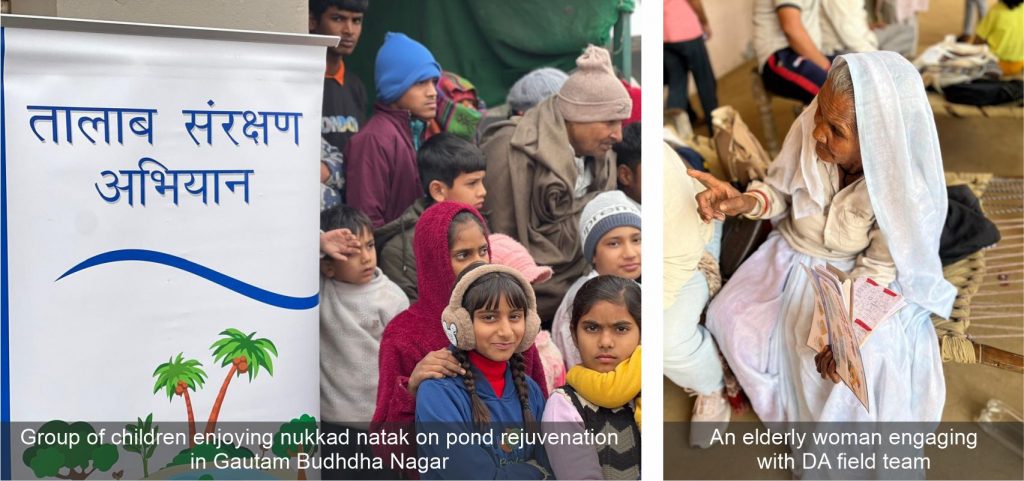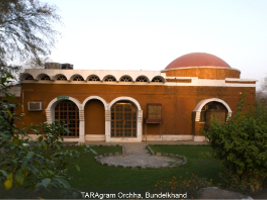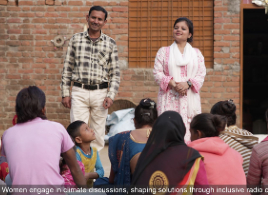Creating Climate Resilient Rural Communities

As climate change accelerates, the vulnerabilities of rural communities across India are no longer hidden — they are starkly visible in depleting water sources, and declining soil health. These changes have disrupted the rhythms of life in our villages in ways both immediate and profound. The weather shifts have affected agricultural patterns, causing forced migrations and displacing livelihoods that once depended on predictable natural cycles.
Yet, even within this unfolding crisis, powerful stories emerge that reaffirm a fundamental truth: resilience takes root at the grassroots. Stories that remind us that the most powerful solutions are built not in policy rooms alone, but emerge from the village, hamlets, fields, forests, and water bodies where communities live and struggle every day. These solutions are found in the daily decisions, actions, and commitments of communities living closest to the land.
The theme of this edition, stems from the belief that the solutions to the climate crisis must be rooted in communities, anchored in local wisdom, and nurtured through inclusive systems. Our work across vast and various geographies such as Sonebhadra, Bundelkhand, Gautam Buddha Nagar, Jhajjar, Chhindwara, and Nalagarh has revealed that when communities are empowered with the tools, knowledge, trust, and voice to act and lead, transformation follows.
It highlights how community-led, decentralised models of development rooted in ecosystem restoration, WASH systems, and sustainable livelihoods are shaping a new, climate-resilient narrative — one where resilience is locally driven, and futures are self-determined. Whether it is rejuvenating ponds in Gautam Budhdha Nagar, building integrated water and waste management systems in Nalagarh, enabling safe sanitation in Bundelkhand, or strengthening the voices of women and youth through Radio Bundelkhand—these interconnected efforts strengthen both environmental and social systems, built on the pillars of nature-based solutions, systems thinking, and local ownership.
These models across various geographies demonstrate how peri-urban and rural areas alike can implement circular economy principles through integrated water and waste systems, rejuvenate degraded commons, adopt climate-smart farming, and foster women-led entrepreneurship. They are not only improving incomes and strengthening green infrastructure but also recharging aquifers, enhancing food and water security, and building social cohesion through collective ownership and innovation.
Meanwhile, our platform Radio Bundelkhand is doing way beyond amplifying messages it is empowering communities with critical knowledge, igniting behaviour change, and nurturing grassroots leadership especially among women and youth.
These diverse initiatives reflect a common thread: resilience cannot be built in silos. It is rooted in community participation and ownership. Water security, sanitation, waste systems, and economic opportunity are interdependent. And by placing communities at the centre of development, we ensure that solutions are context-specific, culturally appropriate, and sustainable. This bottom-up approach calls for policy frameworks and institutional mechanisms that acknowledge the complex interconnectedness of water, livelihoods, ecosystems, and social systems and position Integrated Village Development (IVD) as a core strategy to build long-term resilience to climate-induced challenges.

This issue of DANL is both a reflection of our collective journey and a reaffirmation of our commitment: to nurture resilient communities by restoring their relationship with nature, reviving local knowledge systems, and fostering innovations that regenerate ecosystems and restore futures. Through stories of transformation and ground-level collective action, we hope to inspire dialogue and call those in power in government, in institutions, and in philanthropy to invest in models that are locally driven, inclusive, and future-facing.
Because let us embrace the fact that the path to a restored future does not lie in policy alone. It lies in the lived wisdom of our communities, in their quiet strength and everyday solutions. It lies in working collaboratively to build a sustainable and equitable future—from the ground up. And in understanding that change begins in our villages where people are not just enduring climate change, but reshaping its narrative.
We must listen, learn, and walk with them.
The views expressed in the article are those of the authors and not necessarily those of Development Alternatives.
This blog first appeared as an editorial in Development Alternatives Newsletter June, 2025 https://devalt.org/newsletter/78-resilient-communities,-restored-futures:-climate-action-from-ground-up






Leave a Reply